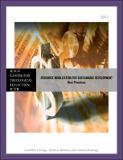| dc.contributor.author | Chongo, Geoffrey;Mwansa, Sydney;Mulenga, Chanda | |
| dc.date.accessioned | 2020-09-29T08:27:31Z | |
| dc.date.available | 2020-09-29T08:27:31Z | |
| dc.date.issued | 2011 | |
| dc.identifier.citation | Chongo, G. et al. (2011). RESOURCE MOBILIZATION FOR SUSTAINABLE DEVELOPMENT: Best Practices. Lusaka, Zambia: Jesuit Centre for Theological Reflection (JCTR) | en |
| dc.identifier.uri | https://repository.jctr.org.zm/handle/20.500.14274/101 | |
| dc.description | Zambia‘s development challenges remain daunting and thus the need for increased resource mobilization cannot be overemphasized. Among other things, the inability to sustainably raise sufficient resources domestically has contributed to the lack of development in Zambia. For example, Zambia has not been able to finance its budget entirely from its own resources and has thus relied on a mix of revenue sources among which taxation has been a major source. Other sources like aid and foreign financing have been declining in terms of their contribution to the budget. In light of declining aid Zambia has to strengthen its domestic resource mobilization if it has to avoid debt burden that comes with loan financing which is another option of financing a
budget. | en |
| dc.description.abstract | Every government needs to mobilize financial resources to finance its development programme. The need to mobilize sufficient financial resources is even more urgent for developing countries like Zambia, as they have more development challenges such as reducing poverty. There are various ways to reduce poverty but common approaches are to create jobs, to provide better health care, to provide better education, to build more infrastructure and above all to improve living standards. This requires financial resources to be mobilized for which governments have various ways of doing it. However, not all forms of resource mobilization can finance development in a way that is sustainable, fair and efficient particularly for resource rich countries in the low income and developing world. | en |
| dc.language.iso | en | en |
| dc.publisher | Jesuit Centre for Theological Reflection | en |
| dc.rights | Attribution-NonCommercial-ShareAlike 3.0 United States | * |
| dc.rights.uri | http://creativecommons.org/licenses/by-nc-sa/3.0/us/ | * |
| dc.subject | Taxation;Resource mobilisation;Sustainable Development | en |
| dc.title | Resource Mobilization For Sustainable Development: Best Practices | en |
| dc.type | Other | en |

